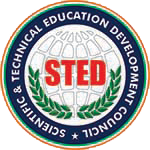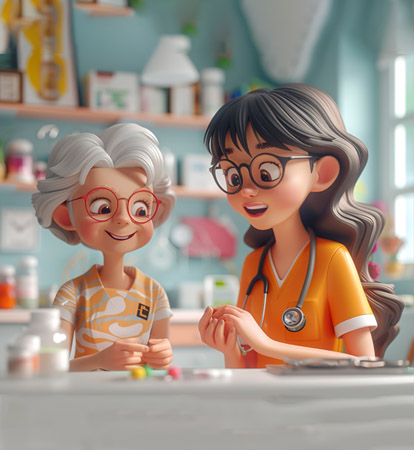Geriatric Care Assistant
The Geriatric Care Assistant (GCA) course is designed to train individuals to become qualified healthcare professionals dedicated to providing care and assistance to elderly individuals. GCAs typically work in various settings such as hospitals, home care, care homes, and old age homes, supporting seniors who may have diverse medical conditions and age-related limitations. Internationally, similar roles are known as Elderly Care Attendants, Geriatric Nursing Aides, or Patient Care Assistants. This program, is aligned with NSQF Level 4, equips individuals with the essential skills and knowledge to make a meaningful difference in the lives of older adults.
Course Objective
The primary objective of the Geriatric Care Assistant (GCA) program is to develop a skilled workforce capable of providing effective care for elderly individuals across the healthcare spectrum. This program aims to:
- Equip individuals with the necessary skills and knowledge to care for elderly individuals effectively.
- Prepare professionals to support elderly patients and assist other healthcare providers.
- Focus on care delivery in home care, care homes, old age homes (including assisted living facilities), rehabilitation institutions, and hospitals.
- Provide a comprehensive understanding of the activities and diverse care interventions required by elderly patients.
- Foster patience, compassion, and a genuine desire to improve the quality of life for older adults.
Course Content & Description:
The Geriatric Care Assistant course offers a holistic learning experience encompassing both theoretical knowledge and practical skills. The curriculum includes the following key modules:
- Introduction to Geriatric Care: Understanding the unique aspects and challenges of caring for the elderly.
- Basic Structure and Function of the Human Body: Foundational knowledge of human anatomy and physiology relevant to geriatric care.
- Communication and Soft Skills: Developing effective communication techniques and interpersonal skills essential for interacting with elderly individuals and their families.
- Common Geriatric Health Problems and Their Management: Learning about prevalent health conditions in older adults and basic management strategies.
- Fundamentals of Nursing 1 & 2 (Personal Care and Hygiene): Providing essential personal care, maintaining hygiene, and ensuring comfort for elderly individuals.
- Medication Management: Understanding the principles of medication administration and adherence in the elderly.
- First Aid Management: Acquiring essential skills to respond effectively to emergency situations.
- Mobility and Fall Prevention: Implementing strategies to promote mobility and prevent falls in older adults.
- Nutrition and Meal Planning: Understanding the nutritional needs of the elderly and assisting with meal planning.
- Basic Life Support: Learning fundamental life-saving techniques.
- Pain and Palliative Management: Providing comfort and support to elderly individuals experiencing pain and those requiring palliative care.
- End of Life Care and Dignity: Understanding the principles of providing compassionate care and maintaining dignity at the end of life.
- Rehabilitation of Geriatrics: Assisting with rehabilitation plans to improve functional abilities in older adults.
- Ethical and Legal Considerations: Understanding the ethical and legal frameworks relevant to geriatric care.
- Basic Computer Knowledge: Developing essential computer skills for documentation and communication.
- Infection Control Practices: Implementing measures to prevent the spread of infections.
- Wound and Bed Sore Management and Prevention: Learning techniques for preventing and managing wounds and bedsores.
The course delivery includes interactive lectures led by experienced geriatric care professionals, practical hands-on training through simulated scenarios, case studies to apply knowledge, quizzes and assessments to reinforce learning, discussion forums for sharing experiences, and comprehensive learning resources.


 Caregiver Training Program
Caregiver Training Program Maternal and Child Nursing
Maternal and Child Nursing Family Caregiver Training
Family Caregiver Training Basic Life Support (BLS)
Basic Life Support (BLS) Advanced Cardiovascular Life Support (ACLS)
Advanced Cardiovascular Life Support (ACLS) Emergency Response Training Program
Emergency Response Training Program